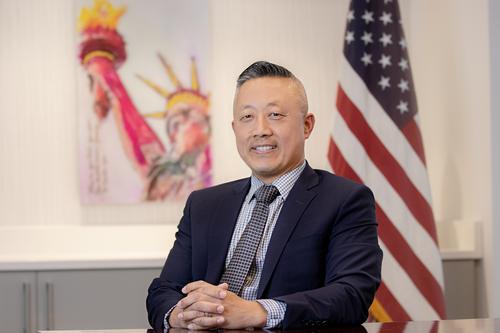Anyone who lives in a foreign country, but wishes to spend time in the United States must first obtain a visa, which will allow them access into the country. The types of visas vary, but typically fall into two distinct categories: immigrant and non-immigrant. Immigrant visas are intended for those who wish to move and live in the U.S. Non-immigrant visas allow individuals from other countries to spend a limited amount of time in the country for a specific purpose. One of the many types of non-immigrant visas frequently utilized by foreign citizens is a G visa.
What Is a G Visa?
A G visa is intended for diplomats, government officials, and employees of international organizations who are traveling to the U.S. on official duty. These visas allow those individuals and their immediate family members into the country lawfully. There are a number of different types of G visas, which are issued for slightly different purposes. These G visas cover different purposes and people, including:
- G1 – Permanent mission members
- G2 – Representatives of a recognized government traveling temporarily to the United States to attend meetings of a designated international organization
- G3 – Representatives of non-recognized or non-member governments
- G4 – Individuals coming to the United States to take up an appointment at a designated international organization, including the United Nations
- G5 – Personal employees or domestic workers of a G-1 – G-4 visa holders
These visas allow those individuals who are approved to stay in the U.S. for what is known as “duration of stay.” This means that as long as you are recognized by the government as a diplomat, government official, or employee of an international organization and you maintain your duties with that organization, you and your eligible family members may remain. Additionally, it is not necessary to apply to extend the length of your stay in the country.
What “Immediate Family Members” Are Eligible on a G Visa?
A G visa does permit what the government denotes “immediate family members” to accompany the primary visa holder. The U.S. Department of State defines these family members as a “spouse and unmarried sons and daughters of any age who are members of the principal applicant's household.” These family members can also be people who regularly and principally reside in the household and are not a member of another household. These people can include:
- Stepchildren.
- Domestic partner. (This does include same sex partner).
- Any other relative by blood, marriage, or adoption of the spouse or domestic partner.
Limitations of a G Visa
There are some situations in which a G visa is not appropriate, with two main limitations. First, any person who is a head of state or government must visit the U.S. with an A-1 diplomatic visa regardless off the nature of the visit. Second, a G visa is dedicated for travel for official international business. Foreign officials traveling for recreational or commercial purposes cannot obtain a G visa. They must apply for the appropriate type of visa for tourism or business. Additionally, international organizations must have been approved as such by the government prior for approval of its employees.
Obtaining a G Visa
To obtain a G visa, foreign officials must follow a number of steps and submit specific required paperwork. The entire application process can include:
- Completing a nonimmigrant visa application form.
- Personal photo submission.
- Obtaining a valid passport from your home country.
- Securing a diplomatic note attesting to the validity of your reason for the visit.
- Completing additional forms for family members who will accompany you.
- Paying visa fees, unless the fees can be waived.
A skilled and experienced immigration lawyer can help complete these tasks and offer advice about how to best proceed. Not every application is granted, and a visa is not always a guarantee that the visitor will be granted entrance into the U.S.
Do You Need Help In Getting Your Green Card Or Visa in Virgina, Maryland or Washington D.C.?
If you're trying to obtain a Green Card or Visa you need to speak with an experienced immigration attorney as soon as possible. Please contact us online or call our Vienna, Virgnia office directly at 703.991.7978 or our Rockville, Maryland office at 301.637.5392 to schedule your case consultation.
|
Related Links: |

